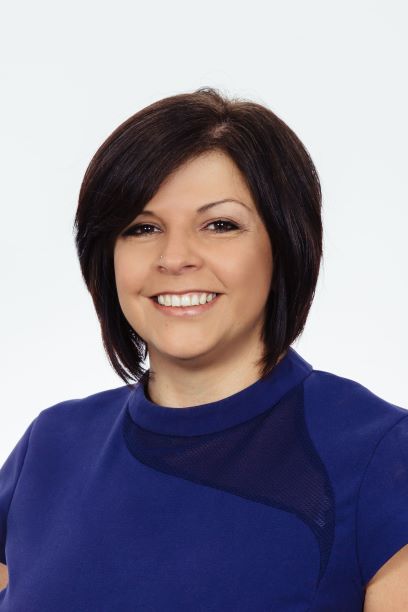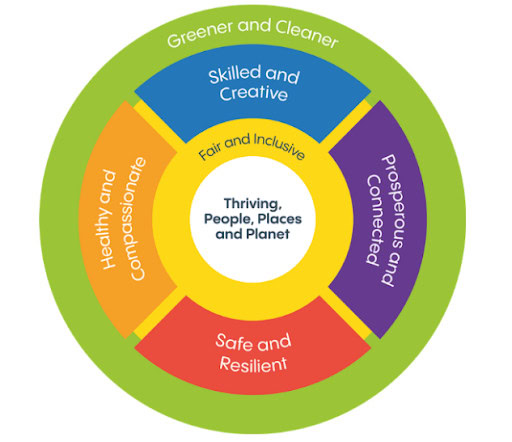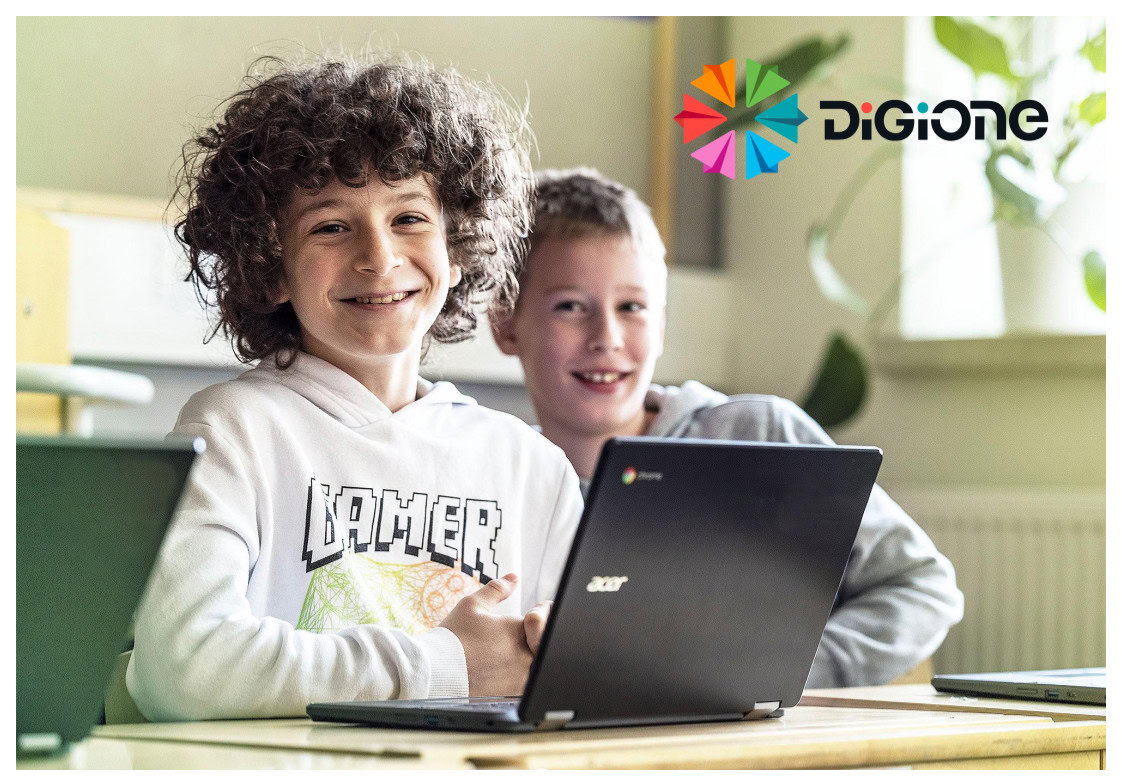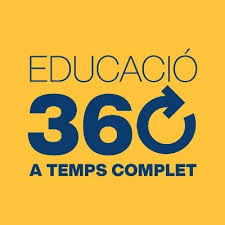They’re Uniting to Transform Education with their learning ecosystem in Doncaster, England with the City of Doncaster Council local authority, and , at the Forge Futures Summit they will be joining other learning ecosystems from around the world. The Doncaster Remake Learning Days 10-day festival is also later this month, from 22-31 May 2024 – find out more here!
Tell us about yourselves and the work you’re doing
The City of Doncaster Council’s role includes a legal duty to ensure that every child fulfils their educational potential.
The Council works with the Team Doncaster strategic partnership to deliver a shared long-term vision for all-age, place-based learning. It also oversees several schools, and an adult, family, and community learning programme.

Meet Director of Children, Young People and Families, Riana Nelson! Riana provides strategic leadership of children’s services, develops and implements policies and initiatives for children’s welfare, and ensures young people receive the best possible opportunities.

Meet Head of Skills, Claire Cardwell! Claire shapes local skills opportunities and ensures this meets the needs of both Doncaster residents and employers. She leads the Education & Skills 2030 strategy and its vision for a Talent and Innovation Ecosystem – ensuring this is fully aligned with the local Economic strategy.
What motivated your organisation’s start, and how has it grown over time?
- We articulated our vision for a Talent & Innovation Ecosystem in our Education & Skills 2030 strategy, which was adopted by Team Doncaster in 2021. Importantly, it takes a long-term and holistic approach; spanning the entirety of the lifelong learning journey. The vision is for equitable and inclusive lifelong learning that empowers people to thrive in life and work.
- The strategy and its underlying delivery plan builds on the previous One Doncaster plan, which delivered on 30 recommendations which were made by an independent commission, as well as a multi-million pound Social Mobility Opportunity Area programme.
- As a result of these policies, Doncaster has been on an upward trajectory – with the independent commission adjudging the Council to be in a ‘virtuous circle’ of improvement. The development of the ecosystem has included establishing a joined up network of local learning assets – from Family Hubs, and community-based learning offers to more bespoke formal provision such as a Foundation School in Health & Care, the UK’s first Big Picture Learning school, two University Technical Colleges and one of the country’s first Institutes of Technology.
- We are building from solid foundations that can be seen in 7 yrs worth of improved educational outcomes across all phases and stages.
- Skills are very much at the forefront of the Council’s agenda and a top priority in the Doncaster Delivering Together borough strategy. Recent work has ensured that there is policy coherence across our educational, economic, and cultural plans in support of our lifelong learning ecosystem model. A key mechanism for this is a focus on five sectoral ‘Centres of Excellence’ – Engineering, Health & Care, Creative & Digital, Green Technology, and Culture.
- The worlds of education and employment are being brough closer together, with a programme to create an employer-led skills profile, and a variety of inclusive pathways to employment.
- The Council has established a new and dedicated Skills service, led by Claire, to support our lifelong learning agenda. This brings together existing services and offers, as well as more transformational workstreams. The Council is keen to draw on international best practice to inform its planning, and this remains a core focus of the skills team.
What are the main challenges your community faces, and how is your organisation working to address them?
- Many of our challenges are familiar with those of other post-industrial cities: a low-wage, low-skill economy, high levels of deprivation, poor health outcomes, and a high proportion of young people who leave the borough in search of higher education and higher skilled employment.
- These challenges have each been exacerbated by the pandemic and subsequent cost of living crisis, and a need to support rising numbers of migrants. This is demonstrated through a rise in those in need of Special Educational Needs and Disabilities (SEND) support, language support, mental health support, and greater levels of disengagement with formal education.
- There are a number of other challenges that are a result of our spatial geography – poor and unreliable transport connections, a sometimes lacking shared sense of identity, and inequitable outcomes across various demographic factors.
- The skills agenda is key to addressing these challenges, and this is why we have a sharp focus on preparing children and young people for an increasingly uncertain future, and ensuring adults have the skills needed to navigate future economic shocks. This includes through employment support, careers information, advice and guidance; and parental engagement.
- Beyond the skills arena, we work at all levels to influence these outcomes, from the level of 1-2-1 interventions (including those offered through our Early Help offer), to shaping commissioned and non-commissioned services (including Public Health measures), to influencing regional policy through the Mayoral Combined Authority and the national policy agenda through our membership of groups such as the Lifelong Learning Institute. (See a report we co-authored with ResPublica which includes a series of recommendations to Government here).
We are also committed to evidence-led decision making, and recently invited an independent Fairness and Wellbeing Commission to make a series of recommendations about how to improve outcomes for local people (you can read these here). We have secured £5m in funding to take forward a Health Determinants Research Collaboration – this is a partnership endeavour between primary care, public health, and local research institutions to understand which interventions work best locally in addressing the causes of the causes of health and wellbeing.
How does thriving look in your community?
- The vision set out in our Doncaster Delivering Together partnership borough strategy is: Thriving People, Places and Planet.
- What we mean by thriving is made explicit by our ‘Wellbeing Wheel’, which comprises a set of goals – the dimensions of wellbeing that must be met to ensure all people (and places) thrive. These include: Skilled and Creative, Prosperous and Connected, Safe and Resilient, and Healthy and Compassionate.
- What the wellbeing wheel makes clear is that thriving cannot happen if certain social foundations are not met, or if an environmental ceiling is exceeded. Two additional goals articulate these protections so that no one is left behind, including future generations: Fair and Inclusive and Greener and Cleaner.

- Each goal has a set of metrics which enable us to track the extent to which communities are thriving. However, these metrics can only tell part of the story – a range of community-engagement structures are in place to ensure we hear directly from the public about what’s working well and what we could be doing. These include our Doncaster Talks borough survey, an Inclusion and Fairness Forum, a Youth Make Your Mark campaign, a localities model, and youth groups such as the Youth Council, Young Commissioners, and Young Advisors.
- Current planning involves discussion of the importance of developing a set of wellbeing capabilities, including through supporting residents to become action researchers.
How does your organisation work like a learning ecosystem?
- Partnerships are really important to us and are the foundations for our learning ecosystem. Following the development of our Education & Skills 2030 strategy, we were keen to draw on international best practice and establish wider networks to complement local activity.
- In 2021 Doncaster became the first place in the UK to host the Global Education Leaders Partnership summit. We were fortunate to receive a presentation from Gregg Behr at that event, in which he shared the work Remake Learning had been doing in Pittsburgh to provide equitable and inclusive learning hands-on learning experiences. This really resonated with our commitment to supercharge the informal learning environment.
- In the discussions that followed that conference we made a commitment to replicate this good practice, recognising that there are many socio-economic similarities between our two cities. Since then, we’ve hosted two small-scale locality-based learning festivals and a city-wide Remake Learning Days festival. This has been a huge success, engaging over 12,000 residents in total to date (read our impact report here). And it’s an agenda that’s growing – we recently recruited a dedicated Learning Manager role and secured funding from the Mayoral Combined Authority to grow the offer.
- Our Remake Learning Days offer has been highlighted by this learning festivals report from the World Innovation Summit for Education (WISE)
- This partnership and the activity it has driven has particular importance since it has the power to engage and inspire learners of all ages and abilities, as well as the ability to penetrate deep into communities.
What do you hope to gain from participating in the GELP Forge Futures event in Pittsburgh? What are you most looking forward to?
We’re well into our ecosystem journey – we have buy-in from partners and are delivering transformational activity across the lifelong learning offer. However, we’re looking forward to receiving constructive feedback about what we could be doing better, and how we might shape our future ambitions.
We’re now looking forward to taking inspiration from our international partners and working collectively to solve problems, and we’re excited to see learning in practice on day 2 across Pittsburgh. We’re also keen to reflect on how our learning ecosystem variant – city – differs from others, and what we might learn from practice elsewhere.



